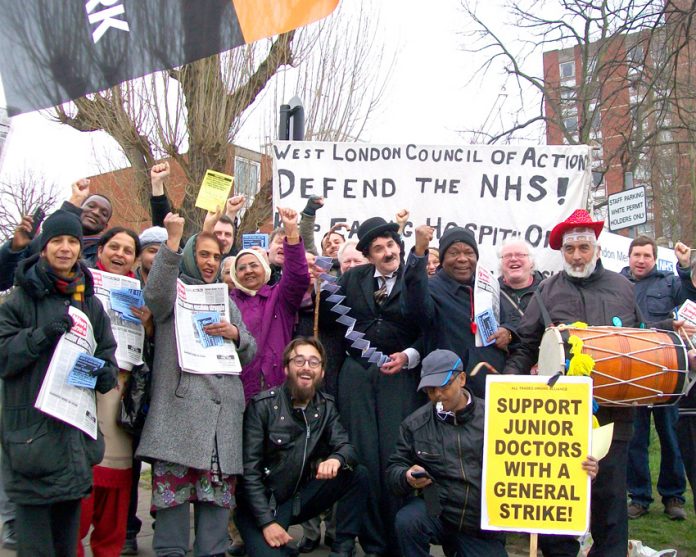
‘TOP TIPS on making difficult decisions’ are being distributed to health bodies around the country to aid them in broaching the subject of hospital closures with the public.
The guidance comes as sustainability and transformation plans (STPs) are being drawn up across England to make significant cuts. The STPs set out how services in each local region are to ‘evolve and become sustainable over the next five years’.
They are to be unfurled next month and are shrouded with controversy, with widespread charges that they are just a cover for savage service cuts and hospital closures. Yesterday, Labour’s shadow health secretary Diane Abbott said the STPs are ‘being used as a cloak for eye-watering cuts and closures of beds, units departments and whole hospitals’.
The STPs, which are being produced by NHS Clinical Commissioners, representing clinical commissioning groups (CCGs), set out to describe how health officials can try to earn the confidence of the public, patients and local politicians when making changes.
A document entitled Making Difficult Decisions says that the most challenging decisions are the ‘closing or relocating of entire services’ such as A&E departments, maternity units or even a community hospital. It offers ‘top tips on making difficult decisions’, including: recognising that local support is ‘vital’ and how to ‘manage stakeholder perceptions through active engagement, consultation and nurturing trustworthy relationships’.
It states: ‘Public reaction and political sensitivities are perceived by some as the greatest barriers to re-prioritising services. Any plan to reconfigure, relocate or withdraw a service can be met with opposition and be perceived by the public, politicians and sometimes clinicians as detrimental to patients and based entirely on the need to cut costs.’
All round the country the huge NHS cuts, closures and privatisations which are already underway are to be stepped up. In northwest London, under the cynically titled ‘Shaping a Healthier Future’, the A&Es at Hammersmith and Central Middlesex Hospitals have already closed, as have maternity and paediatric services at Ealing, while the closures of the A&Es at Ealing and Charing Cross hospitals are imminent.